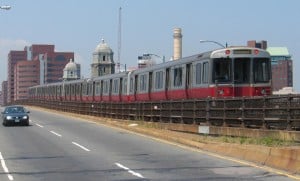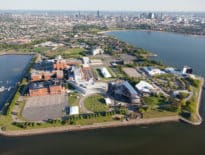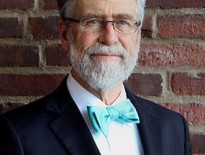The MBTA’s public hearing Wednesday night on proposed fare increases seemed to touch virtually every grievance and concern directed at the authority in recent years.
Attendees shared stories of being late to work because trains were too full to let on new passengers and of standing on crowded platforms with no information about delays. They warned that the proposed hikes, which average about 6.3 percent, would disproportionately harm low-income commuters who rely on public transit. They cautioned that, by the T’s own estimates, higher fares would drive down ridership and push more travelers onto already-crowded roads in carbon-spewing vehicles.
In total, dozens of elected officials, transit activists and residents spoke Wednesday, virtually all arguing against the fare hikes.
“If Boston is truly a world-class city, when are we going to get a world-class transit system and not something that feels like children playing with trains?” said Salem resident Frank Emanuele, who recounted receiving 29 text alerts about service on the Rockport line last Thursday alone.
Since the MBTA announced the fare hikes last month, the plan has been met with significant pushback. More than 2,000 people had made comments about the plan across six public meetings before Wednesday, and dozens of elected officials have already come out in opposition.
The proposal would raise fares by an average of 6.3 percent, but each type of transit faces a different change. A single ride on the subway would increase from $2.25 to $2.40, while a bus ride would increase from $1.70 to $1.80. Commuter rail costs could increase as much as 75 cents for one trip or $27.75 for a monthly pass in the farthest zones.
Transit officials say the measure – the first fare hikes since 2016 – would create about $32 million per year in new revenue as the authority works to grow after years of financial challenges. MBTA General Manager Steve Poftak wrote in a Boston Globe op-ed on Monday that the plan “will enable the MBTA to continue building on its progress made over the last four years to improve reliability for customers.”
Boston city councilors, led by Councilors Althea Garrison and Michelle Wu, are examining if Boston should withhold its $85 million annual payment to the T until transit service improves.







